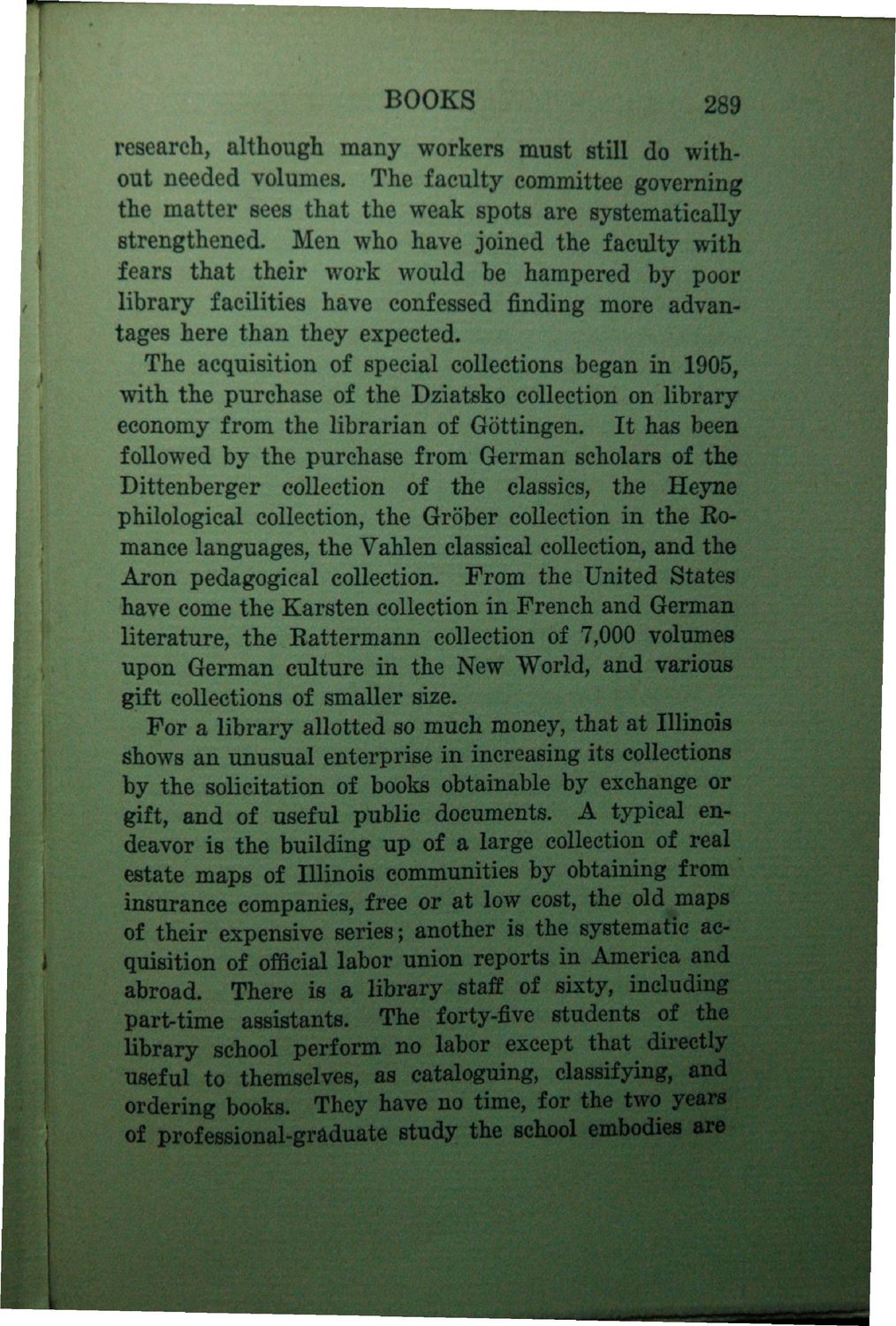| |
| |
Caption: Book - History of the University (Nevins)
This is a reduced-resolution page image for fast online browsing.

EXTRACTED TEXT FROM PAGE:
289 research, although many workers must still do without needed volumes. The faculty committee governing the matter sees that the weak spots are systematically strengthened Men who have joined the faculty with fears that their work would be hampered by poor library facilities have confessed finding more advantages here than they expected. The acquisition of special collections began in 1905, with the purchase of the Dziatsko collection on library economy from the librarian of Gottingen. It has been followed by the purchase from German scholars of the Dittenberger collection of the classics, the Heyne philological collection, the Grober collection in the Romance languages, the Vahlen classical collection, and the Aron pedagogical collection. From the United States have come the Karsten collection in French and German literature, the Rattermann collection of 7,000 volumes upon German culture in the New World, and various gift collections of smaller size. For a library allotted so much money, that at Illinois shows an unusual enterprise in increasing its collections by the solicitation of books obtainable by exchange or gift, and of useful public documents. A typical endeavor is the building up of a large collection of real estate maps of Illinois communities by obtaining from insurance companies, free or at low cost, the old .maps of their expensive series; another is the systemanc acquisition of official labor union reports in America and abroad. There is a library staff of sixty, including part-time assistants. The forty-five students of the library school perform no labor except that directly useful to themselves, as cataloguing, classifying, and ordering books. They have no time, for the two years of professional-graduate study the school embodies are BOOKS
| |